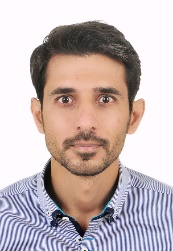Guest Editors
Prof. Dr. Adnan Mustafa
Email: adnanmustafa780@gmail.com
Affiliation: Institute of Chemistry and Technology of Environmental Protection, Faculty of Chemistry, Brno University of Technology, Czechia; Key Laboratory of Vegetation Restoration and Management of Degraded Ecosystems, South China Botanical Garden, Chinese Academy of Sciences, Guangzhou 510650, China
Homepage:
Research Interests: soil science, soil microbiology, soil fertility, crop production, sustainable environment

Dr. Mohsin Mehmood
Email: drmohsin@imu.edu.cn
Affiliation: Key Laboratory of Grassland Ecology, School of Ecology and Environment, Inner Mongolia University, Hohhot 010020, China
Homepage:
Research Interests: soil fertility, plant nutrition, soil health, soil genesis

Summary
This special issue aims to explore the intricate interactions between soil microbes and abiotic stress factors, focusing on their collective impact on root physiology, crop growth, and hormonal dynamics. The significance of this research area lies in its potential to unlock new strategies for enhancing crop resilience and productivity under challenging environmental conditions, by understanding how soil microbes modulate plant responses to abiotic stress through hormonal changes and root system adaptations.
The importance of this research area cannot be overstated. With global food security under threat from increasingly unpredictable weather patterns and soil degradation, the need for sustainable agricultural practices has never been more urgent. Investigating the role of soil microbes in modulating plant responses to abiotic stress offers a promising avenue for improving crop performance and sustainability. By focusing on the physiological and hormonal changes in plants driven by these interactions, researchers can uncover novel approaches to mitigate the adverse effects of environmental stressors on crop yield and quality.
Keywords
soil microbes, abiotic stress, plant-microbe interactions, stress resilience, biostimulants, biofertilizers, biochar, composts
Published Papers